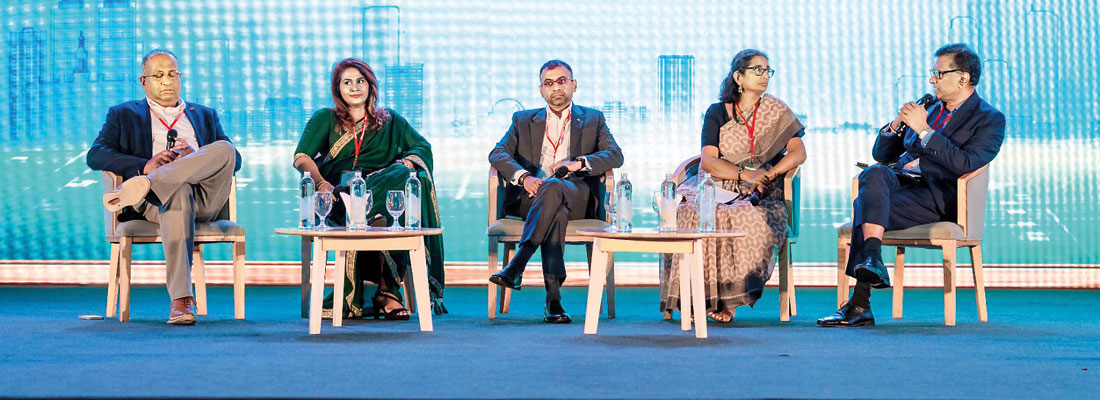In an Era of Unprecedented Change, HR Leaders Call for a Radically Agile Workforce
View(s):In a world grappling with what many now call a “polycrisis”—a convergence of economic instability, geopolitical tension, and relentless technological disruption—the old paradigms of workforce management are no longer simply outdated; they are liabilities. For businesses in Sri Lanka and across the globe, survival and growth now depend on a new, more dynamic asset: a workforce that can pivot, adapt, and innovate on the fly.
This urgent imperative was the central theme at the National HR Conference 2025, hosted by CIPM Sri Lanka on June 3rd at the Monarch Imperial. The event convened a panel of distinguished industry leaders, academics, and HR practitioners to grapple with a critical question: How do we build a workforce that is not just prepared for the future, but can actively shape it? The discussion that unfolded was not one of incremental adjustments, but a call for a fundamental reimagining of how we hire, train, manage, and lead people.

The panel, expertly moderated by Janaka Kumarasinghe, featured insights from Mayura Malagala, Chetana Liyanage, Pavithra Kailasapathy, and Rajitha Kariyawasam. Together, they mapped out the profound challenges and actionable strategies for cultivating the future-ready, agile workforce essential for navigating the complex, uncertain decades ahead.
Defining the ‘Future-Ready’ Workforce in an Age of Uncertainty
Moderator Janaka Kumarasinghe initiated the dialogue by posing a question that cuts to the heart of modern strategy: in a future that is largely unknowable, what does “readiness” truly mean?
Pavithra Kailasapathy of the University of Kalam’s Department of Human Resources offered a foundational definition, urging a move away from static planning. “When we talk about a future-ready workforce, we must first humbly accept that we cannot predict what the future holds,” she stated. “The only certainty is uncertainty itself. Crises and disruptions are no longer black swan events; they are becoming the regular rhythm of the global landscape. Therefore, organizations—and indeed, the nation—need a workforce that is inherently adaptable, flexible, and psychologically equipped for swift decision-making amidst constant change.”
She delved deeper, stressing that this capability goes far beyond a simple list of technical proficiencies. “It’s not just about skills; it’s about possessing a growth mindset—the core belief that abilities and intelligence can be developed through dedication and hard work. This contrasts sharply with a fixed mindset, which assumes talent is innate and unchangeable.” In practice, an employee with a growth mindset sees a challenge as an opportunity to learn, whereas one with a fixed mindset sees it as a threat that might expose their limitations.
“Agility,” Kailasapathy concluded, “is the fusion of this learning ability with the adaptability to apply that knowledge in novel, often high-pressure, situations. It’s about learning, unlearning, and relearning as a continuous cycle.”
Navigating Exponential Change and Geopolitical Shockwaves
The conversation then shifted to the powerful external forces compelling this evolution. Rajitha Kariyawasam, a multidisciplinary executive with deep experience in global manufacturing and business, painted a stark picture of the operating environment.
“This isn’t ordinary, linear change; it’s dramatic, exponential transformation,” he warned. “The rate of change is vast and accelerating, primarily driven by a new wave of technology. We are seeing robotics, AI, and automation not just augmenting human work, but fundamentally redefining entire job categories.” He explained that this isn’t a distant future; AI is already handling complex analytics and diagnostics, while automation is reshaping supply chains. “The agility we have today, which might feel advanced, could very well be obsolete by tomorrow.”
Beyond technology, Kariyawasam highlighted the immense impact of geopolitical volatility. “Strategic plans can be shattered overnight by a single policy decision made thousands of miles away,” he noted. “When a major economic power, like the US, suddenly announces a 44% tariff, it can decimate a company’s core export market in an instant. A company’s ability to survive such a shock depends entirely on its agility.”
How can an organization respond? “It requires a collaborative, ecosystem-wide approach,” he argued. “You need to rapidly explore new markets, reskill your sales and logistics teams, re-engineer products to meet new price points, and potentially adopt new technologies to reduce costs. This is not a challenge for one department; it involves the entire workforce, suppliers, industry bodies, and even government support.”
He pointed to China’s remarkable economic transformation as a powerful, large-scale precedent. “Look at how Chinese companies and institutions fostered a national culture of agility. They invested massively in upskilling their workforce, from factory floors to research labs. They embraced cutting-edge technologies fearlessly and built an infrastructure that could pivot to meet global demand. They turned potential weaknesses into the very drivers of change, a lesson for any company looking to build a forward-thinking, adaptable organization.”
HitAd.lk is the best and biggest mobile phone market in Sri Lanka, and we guarantee you will find what you need here from our extensive listing of mobile phones for sale in Sri Lanka. Whether it’s a budget-priced smartphone for communication, or higher end features with advanced connectivity, there are many different options from which to choose from on our site!


